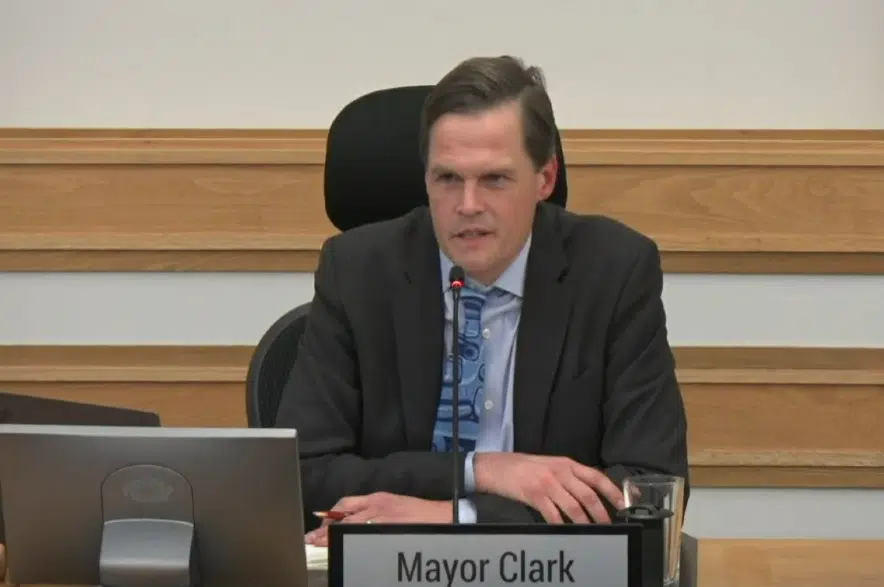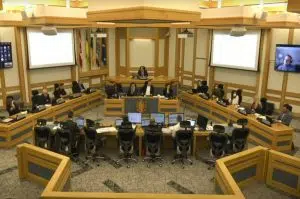After two days of deliberations, Saskatoon city councillors passed the 2023 budget on Tuesday with a 3.93 per cent property tax increase.
For a home assessed at $344,000, it means around an extra $6.50 per month. Prior to budget deliberations, administration recommended a 4.38 per cent increase, with options for a .21 per cent decrease.
Chief financial officer Clae Hack said the city appreciates the place that residents and businesses are in, combating “unforeseen times” right now with inflation, and during a world-wide pandemic.
“We do our best to try to balance the services that citizens expect from us, along with a reasonable property tax increase. Through the debates over the last couple of days, I’m confident we got to that reasonable balance,” he said.
Hack presented a budget with a revenue increase of $7.75 million in 2023, but with $10.04 million in expenditures, leaving a $2.28-million gap that needed to be covered by property taxes.
“Approximately $1.3 million was brought down by discussions over the last couple of days,” he said.
The 2023 budget will be around $1.33 billion in total, including $338 million for the capital, $586 million for the operating, and $399 million for the utilities budgets.
Council did increase some budgets, including approving the Saskatoon Police Service’s ask of $760,000 in its operating budget, which would include an extra 11 full-time officers. The original 2023 budget approved in 2021 included money for eight officers. In 2023, that will go up to 19 full-time police officers.
According to administration, the number of city staff, including police officers, will go up by 77.6 Full Time Equivalent (FTE) positions. Remai Modern will get three more full-time staff for a total of four, and Saskatoon Transit will get an extra four hires, for a total of 10 in 2023. Utilities will see another 21 FTEs.
“Each and every additional Full Time Equivalent that was identified was needed. Most of them are within the police request to have the Alternate Response Officers (AROs), as well as some positions that are funded by the province. We know and see that we need to have some additional transit staff in the mechanic area, so we do not end up in a situation where we don’t have buses out on the streets,” said Mayor Charlie Clark.
Council also voted to add another $100,000 to the Attainable Housing Program to help close an identified funding gap, while the Saskatoon SPCA will receive another $95,000 in 2023 to help with shelter services, over and above a $400,000 increase to its 2023 budget.
Clark said while the ideal was not to raise property taxes, that simply wasn’t possible, especially with the city also facing cost increases like everyone else.
“Just fuel alone is a $5-million impact on this budget. We know we have the policing pressures that we’re facing. Together, those alone add a $7-million increase over what we projected, while revenues are also down in transit, leisure services and parking, and inflation is up,” said Clark.
Council found savings by lowering the fuel contingency by 10 cents per litre, saving $700,000; deferring the Saskatoon Light and Power Return on Investment by $500,000; deferring transit services for Aspen Ridge by $83,600; and, by transferring $67,000 less into the Major Special Events reserve, which is currently sitting at $1.9 million.
Council also voted to approve the rate for the Curbside Organics Program in 2023. The fee per rollout cart per month will be set at $6.73 per month, beginning in May for eligible households.












